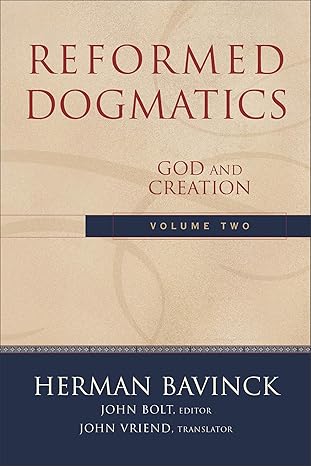A Brief Book Summary from Books At a Glance
by Steve West
Table of Contents
Part I – Knowing God
1 The Incomprehensibility of God
2 The Knowledge of God
Part II – The Living, Acting God
3 The Names of God
4 God’s Incommunicable Attributes
5 God’s Communicable Attributes
6 The Holy Trinity
Part III – God’s Will on Earth as it is in Heaven
7 The Divine Counsel
8 Creation
Part IV – Maker of Heaven and Earth
9 Heaven: The Spiritual World
10 Earth: The Material World
Part V – The Image of God
11 Human Origins
12 Human Nature
13 Human Destiny
Part VI – God’s Fatherly Care
14 Providence
Summary
*Editor’s Note: This book is divided into two book summaries. The first summarizes Parts I-II, and the second summarizes III-VI. This is Part 1.
Part I: Knowing God
There is mystery in knowing God, since he is unfathomable to finite minds. Everything relates to God, and in one sense, God alone is the only dogma: he is the heart of all theology. Life is found in knowing the transcendent God who dwells intimately with his people. Israel’s covenant God is the only true and living God; the gods of the nations are nothing. God’s relationship with Israel is based on election. The only God called Abraham and established his covenant with him. God cannot be contained by the highest heaven, yet he reveals himself to his people and makes his home with them. The fullness of the revelation of God is found in Jesus Christ. Unlike other gods, God is both absolute and personal, transcendent and immanent. The biblical conception of God is not derived from other religions or philosophy. In fact, all other religions and philosophies separate his personality and absoluteness. He is incomprehensible yet truly knowable.
Throughout church history, theologians and philosophers have understood and articulated in different ways the relationship between the being of God and our knowledge of him. The Reformers had a high sense of God’s transcendent majesty and incomprehensible splendor of being. Kant removed God from our realm of epistemic access but maintained that, as a postulate of practical reason, he was necessary as an underwriter of moral justice. Many since Kant have seen God not as an ontological being but as a projection of the human psyche, where theological statements reveal something about the human making them but nothing about God. Some today argue that if God is personal, he must be finite, and if he is truly infinite and transcendent, he must be impersonal. Christian theology has long recognized tensions and mystery in how we know God, but it is clear that he has revealed himself so that we can know him. We are always limited in our capacities as creatures, but we can know him through his works and revelation. Our knowledge is analogical rather than univocal.
When we call God personal, we are speaking in inescapable anthropomorphic categories. If we do not know God analogically, we cannot know him at all. If we can know nothing about him, then we cannot experience him. Our feelings and emotions, just like our thoughts, are finite and cannot fully contain the infinite. Essentially, the question is whether God is capable of revealing himself to his creation. The church has always maintained that God exists and that he’s capable of communicating successfully with his image bearers. Our knowledge is always finite and relative, but limited knowledge can still be sufficient and true. Even without comprehensive knowledge of God, we can have enough true knowledge to live in relationship with him. . . .
[To continue reading this summary, please see below....]The remainder of this article is premium content. Become a member to continue reading.
Already have an account? Sign In
